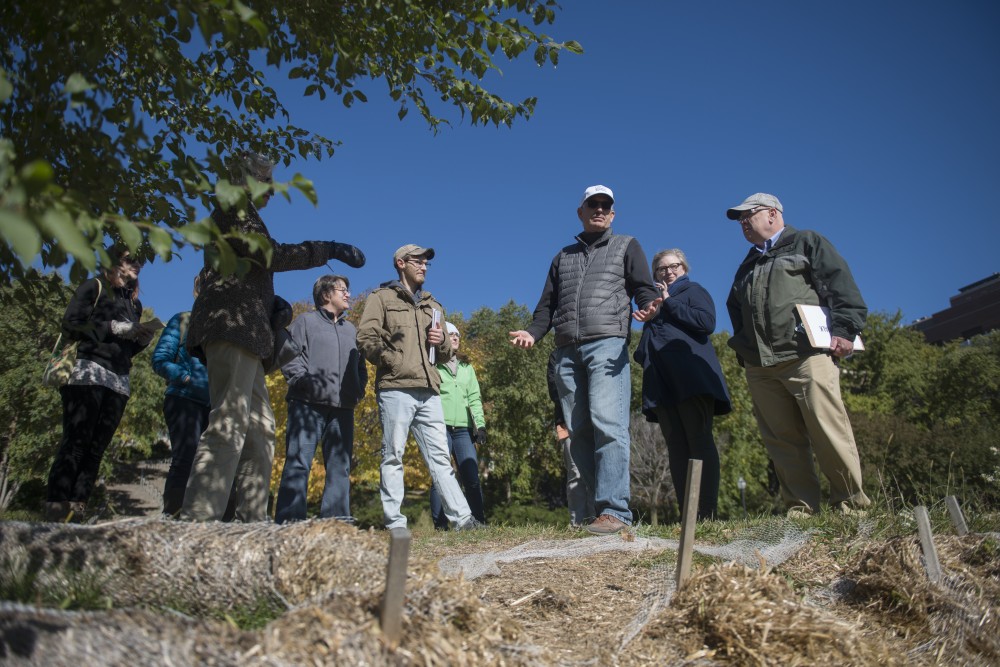Water researchers at the University of Minnesota are increasing collaboration with community partners in light of a new exhibit on water resources hosted by the University.
We Are Water MN — a traveling exhibit showcasing the stories and relationships Minnesotans have with water — opened last Friday at the University’s Institute on the Environment on the St. Paul campus. University researchers say the exhibit underscores the importance of connecting water research with community movements.
The exhibit was organized by the Minnesota Humanities Center, a local nonprofit, along with several state agencies, and will run at the University through late November before moving on to seven other locations in Minnesota.
“This exhibit is just a spectacular example of collaboration and cross-pollination,” said IonE Director Jessica Hellmann at the opening.
The exhibit is one of several water-related events hosted by IonE and the University’s River Life program throughout October. This includes weekly walks along the Mississippi River hosted by River Life that feature conversations on a range of water-related issues.

These collaborative efforts come at an important time for water management, said Patrick Nunnally, coordinator of the River Life program.
“We increasingly understand that the state’s waters are facing stresses,” Nunnally said. These stresses include aging water infrastructure, increasing pollution and climate change.
Current estimates show around 40 percent of Minnesota’s lakes and rivers are polluted, according to the Minnesota Pollution Control Agency.
“Water issues are becoming widely recognized as issues of equity and justice,” Nunnally said. “It’s a human right to have drinking water, water for sanitation, water for cleaning, water for food preparation.”
Last month, the IonE’s Global Water Initiative debuted new goals aimed at ensuring Minnesotans have access to drinking water in the coming decades — featuring new research projects that will be created in collaboration with communities throughout the state.
Kate Brauman, lead scientist for the Global Water Initiative, said the initiative will help find gaps of knowledge in the state and direct research to address those areas, a process still in its opening stages.
“What we’ve really been thinking about is how to identify issues that are really pressing for Minnesota … and align some of the work that is happening at the University of Minnesota under those [issues],” she said.

Brauman said researchers will work with communities to find out where research is needed and ensure that work is actually useful in the real world.
“What we’ve come to understand … is that the questions we choose to ask and therefore the answers we come up with, are very much a product of what we think is important,” she said. “We can only manage [water resources] for the things we know people care about.”
Water research, unlike other areas of scientific study, lends itself to community partnerships, Brauman said.
“People really do care about water,” she said. “It’s something that we have such an immediate and visceral connection to.”
Jennifer Tonko, program manager at the Minnesota Humanities Center, said We Are Water is centered on sharing diverse stories and experiences about water from across the state.
“We really want people who visit the exhibit to have it as a moment to pause and reflect on their own personal relationship with water and their own personal responsibilities,” she said. “Most of these problems we know the technical solutions for, it’s the social solutions that are harder.”
The personal connection with water is what Nunnally hopes people will glean from the We Are Water MN exhibit and other events on campus.
“All of us can make an impact on the water system we all share,” he said. “We all have a responsibility to be stewards of that water.”
















